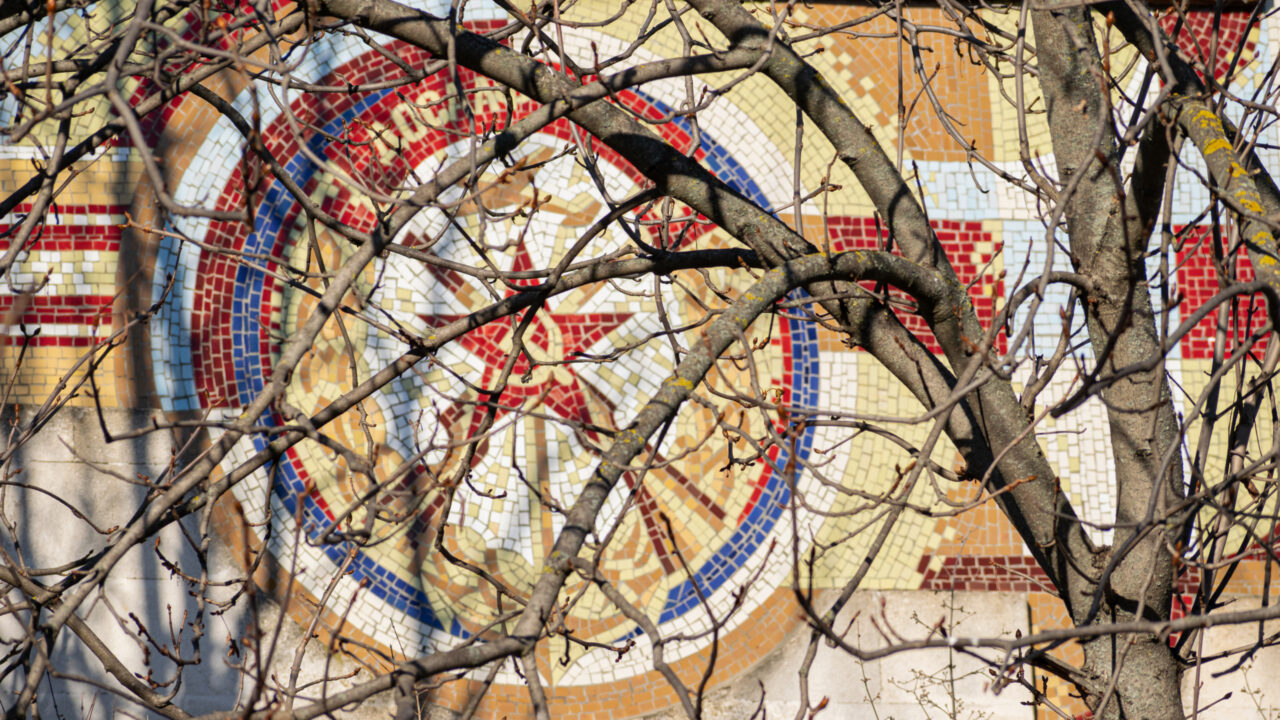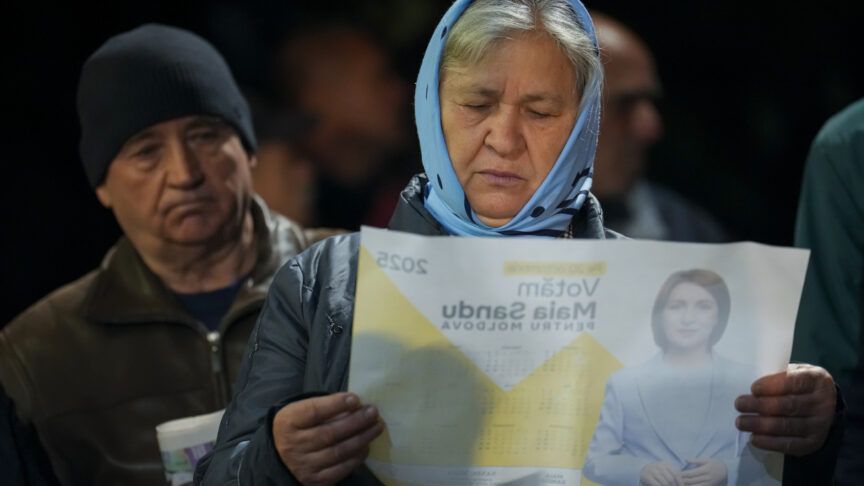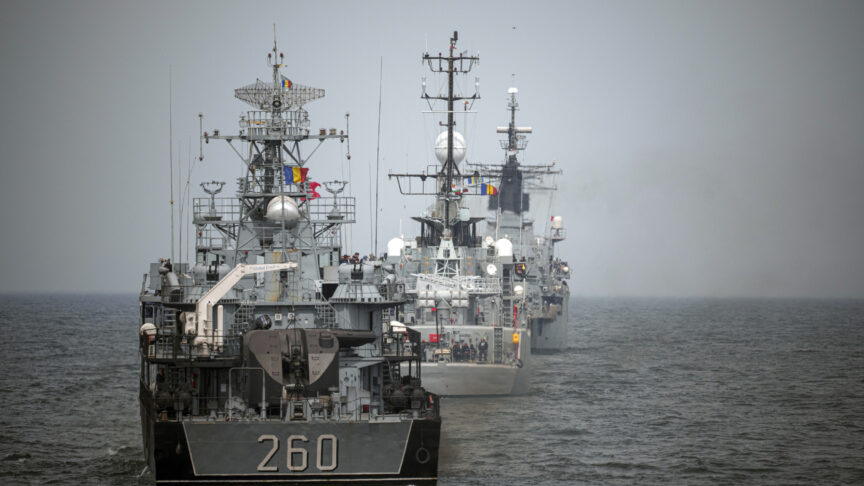Echo of empire: Why Russia’s war on Ukraine troubles all post-Soviet countries
Russia’s war on Ukraine could have a heavy impact on other post-Soviet countries. Unless the EU helps these countries deal with the effects of the conflict, they could become increasingly dependent on the Kremlin
The Kremlin’s all-out war on Ukraine is having massive consequences for not only the country itself but also other post-Soviet states. These states, which have experienced an unprecedented influx of refugees in recent weeks, could be threatened by the same geopolitical vision that lies behind the Russian assault. In a speech on 21 February, Russian President Vladimir Putin questioned the existence of Ukraine, describing it as a mere creation of Lenin’s Soviet Union. But this logic could also be applied to other post-Soviet republics – all of which, including Russia, were established in their current form by Soviet leaders. Given that there is a widening gap between public perceptions and official positions in some of these countries, the conflict could have severe effects on their economies and societies.
On 2 March, the UN General Assembly voted for a resolution to condemn the war on Ukraine. This provided a first glance at how the 15 former members of the Soviet Union are positioning themselves vis-à-vis the conflict. Only Belarus aligned with Russia to reject the resolution. The abstentions on the vote included Armenia, Kazakhstan, Kyrgyzstan, and Tajikistan – which have strong links to Russia and belong to Russian-dominated regional bodies such as the Collective Security Treaty Organization (CSTO) and the Eurasian Economic Union. Azerbaijan, Turkmenistan, and Uzbekistan simply avoided the vote. Moldova and Georgia – which are directly affected by conflicts involving Russia – supported Ukraine. These decisions reflect a great deal about the broad relationships Russia has with other former Soviet states, and how much antagonism or autonomy they can afford on the international stage.
Yet the votes do not tell the whole story. Armenia, which has heavily relied on Russia for its own security since the November 2020 Nagorno-Karabakh war, generally has little choice but to side with Russia in international forums. Meanwhile, by not participating in the vote, Azerbaijan avoided the need to take a stance on a clear violation of the territorial integrity of a sovereign state – a principle that it adamantly defended until it regained control of Nagorno-Karabakh. Just a few days earlier, Azerbaijan signed a series of bilateral agreements that President Ilham Aliyev described as amounting to an “alliance” with Russia. This came just a few hours after Putin recognised the so-called people’s republics of Donetsk and Luhansk, which are attempting to break away from Ukraine.
Apart from Belarus’s Alyaksandr Lukashenka, the only national leader from the region who openly supported Russia is Kyrgyz President Sadyr Japarov – who echoed Russia’s narrative about how the war was intended to protect the local population in Donbas. A few days later, Japarov expressed the need for Kyrgyzstan, as “a small republic”, to remain neutral. He appeared to be hinting that the country would have adopted a tougher stance on the war if it was less dependent on Russia.
Kazakhstan adopted a more nuanced position, despite having received Russian support to suppress the unrest it experienced in January 2022. President Kassym-Zhomart Tokayev did not criticise the war, but mentioned the “critical need to ensure the safety, sovereignty and territorial integrity of our country” as the core element of Kazakhstan’s position. Like Japarov, he seemed to be implying that his country had concerns about Russia’s behaviour. Tokayev also called on Russia and Ukraine to negotiate a solution to the conflict, offering to mediate between them. It seems that Kazakhstan has refused to engage actively in the war, despite Russia’s demands that it do so within the framework of the CSTO. More importantly, Kazakhstan’s authorities organised a protest against the war in Almaty on 6 March – a significant move given their usual reluctance to permit any demonstrations, especially since January. Several hundred people, including members of the local Russian community, took part in the protest. As Kazakhs and Ukrainians had similarly traumatic experiences under Soviet rule during the 1920s and 1930s – and as Russian nationalists deny their countries’ statehood – Russia’s war on Ukraine generates fear in many citizens of Kazakhstan, including officials.
The gap between official positions and public perceptions will only grow as the conflict intensifies
Such sentiments are even stronger in Georgia, where memories of the 2008 war with Russia are still fresh. Tens of thousands have participated in the latest rallies to support Ukraine and to criticise the government’s ambiguous position on the war. The protesters see the government as being too complacent towards Russia. The recent arrival in Georgia of many fleeing Russians could heighten social tensions in a country that is already deeply polarised.
The gap between official positions and public perceptions will only grow as the conflict intensifies. This could be highly destabilising in combination with the consequences for the regions’ economies of Western sanctions on Russia. Though they have not been targeted by sanctions, many countries in the region are already experiencing the economic effects of the war. The currencies of countries with strong economic links to Russia, especially members of the Eurasian Economic Union, have been under huge pressure: the value of Armenia’s dram fell by 5 per cent against the US dollar in a few days; Tajikistan’s somoni by 35 per cent in a week; and Kazakhstan’s tenge by 20 per cent in two weeks (despite the central bank’s interventions in foreign exchange markets).
Post-Soviet countries that rely heavily on remittances from migrant workers in Russia could experience a significant decline in growth and a rise in unemployment as these workers return home. States such as Kazakhstan could be affected by not just a loss of opportunities in the Russian market but also difficulties in exporting oil through the Russian pipelines, given that alternative routes are more expensive.
As the war grinds on and the Ukrainian resistance endures, the myth of Russian military might will decline. Yet countries in the region will come under growing pressure to choose a side. The European Union and its member states should try to mitigate the impact of the conflict on these countries, especially its economic effects. If the EU intends to take a leading role in the region, it will need to maintain a dialogue and channels of cooperation with post-Soviet states. Otherwise, they will be forced into alignment with Russia by the lack of a real alternative.
The European Council on Foreign Relations does not take collective positions. ECFR publications only represent the views of their individual authors.



